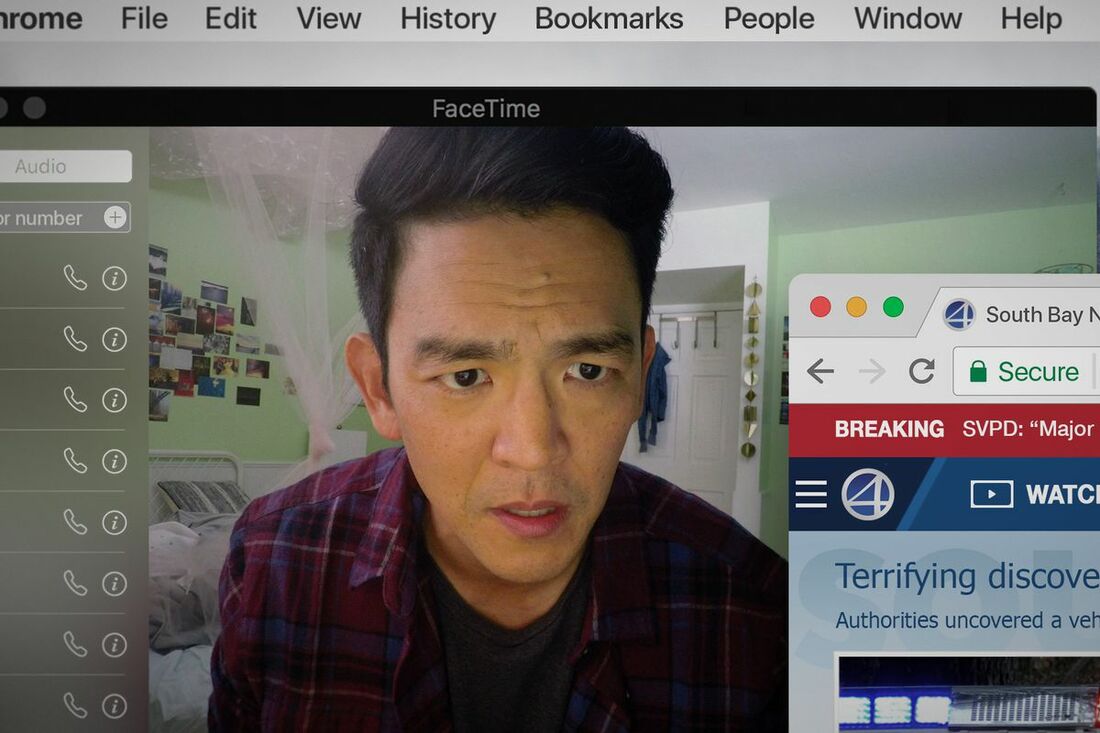David’s futile willing of circumstances to a contented, surface-level mundanity gives him and the viewer their first surprises when Margot is suddenly unreachable. Through the no-nonsense missing-persons detective assigned to the case (Debra Messing’s Detective Vick), David comes to understand how little he knows of Margot’s social life and how disconnected he’s become from his socially-isolated daughter. Cho beautifully conveys the pain of seeing the true state of his daughter’s loneliness and of the puncturing of the mental picture he had of a happy daughter. He has no time to process this pain in the wake of Margot’s absence, but instead of putting it away, Cho layers it on top of a harried determination to sort through her extensive digital life and a growing fury at the trolls who instantly come out of the woodwork to accuse him of harming his daughter. Up close on a webcam for much of the film, Cho is somehow giving a physical performance from a static frame, practically aging onscreen as he moves through this ordeal.
Chaganty, who co-wrote the script with Sev Ohanian, does well to start from character and take his time in fleshing out the principals before opening up the central mystery. In a further sign of a strong filmmaker, the mystery itself is well-constructed enough to perhaps survive without the emotional grounding. In the immediate wake of Margot’s absence, Chaganty engages in some always-appreciated competency porn, meticulously tracking the steps required for David to break into his daughter’s various accounts. The subsequent red herrings required of any mystery aren’t out of the realm of plausibility, while some light media satire juices up the world outside of the Kim family and gives the viewer an outlet for some earned outrage.
For as well-handled as so many aspects of Searching are, the main question of why bother with the gimmick remains. Setting aside commercial interests that may have forced Chaganty into this box, the choice to restrict the filmmaking to such an extent feels like a modern Dogme 95 challenge, a series of boxes that don’t make the film itself any better. Chaganty clearly has the goods to make a straightforward film with something to say about how people live now while also evoking the eternal rift between parents and children, regardless of the many new ways to communicate. His follow-up hopefully discards the tricks. The worst thing would be for him to try and top himself with more hurdles to clear. B-

 RSS Feed
RSS Feed